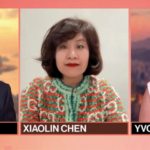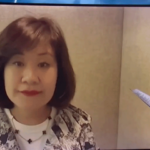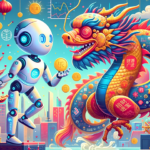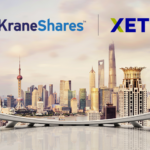There’s A New Acronym in Town: TMD

CNBC’s Jim Cramer coined the term FANG to refer to Facebook, Amazon, Netflix and Google in 2013. Since then, acronyms have become a popular tool for defining leaders in the internet sector. In China, the BAT companies (Baidu, Alibaba, and Tencent) have reigned supreme since 2015. These companies were early entrants to China's internet sector, providing users with search, e-commerce, gaming, and social media. By gaining critical mass relatively early in China's digital evolution, BAT positioned themselves as mainstays of China's digital ecosystem. Now there is a new acronym in town representing the “second wave” of Chinese internet giants. Born in the era of mobile technology, and all less than ten years old1, Toutiao, Meituan-Dianping, and Didi form the new acronym TMD (which is also ironic shorthand for a common Chinese expletive). TMD companies have rapidly grown their valuations to rival those of BAT2 and offer differentiated services such as personalized information feeds, on-demand delivery and ride-sharing. The TMD companies have incorporated technology trends such as “super apps”, artificial intelligence (AI) and machine learning algorithms, and have expanded into markets beyond China. These competitive advantages have helped to propel TMD to acronym-status.
While some see TMD as competition to BAT, in reality, both acronyms reflect the enormous opportunity in China. For over a decade, China has had the largest internet-connected population in the world.3 However, as a percentage of China’s population, this figure is relatively low at only 59.6%.4 This statistic highlights both the size of China’s society and the continued potential for growth of its internet population. We believe BAT and TMD are the first and second of many acronyms to come out of China. By understanding the TMD companies, we can better understand the size of the market opportunity in China and China’s technology landscape as a whole.
Toutiao
Founded in August of 2012, Toutiao had 120 million average daily active users in 2018. By comparison, Twitter, established in 2006, had 100 million average daily active users in 2018. Toutiao, which means “Headlines” in Mandarin, is similar to Twitter in that it provides users with personalized information feeds powered by machine learning algorithms. While Toutiao is a household name in China, Toutiao's parent company, "ByteDance", and social media platform TikTok may be more familiar to Western readers. Specifically launched for markets outside of China, TikTok allows users to create and share short lip-sync, comedy, and talent videos. What differentiates TikTok from other Chinese social media apps is that they have penetrated and are thriving in the highly developed US market. TikTok derives 26.5 million of its 500 million monthly active users from the US.7 Within the United States, TikTok's popularity surged after it merged with another ByteDance product, the popular music streaming app musical.ly. In the fourth quarter of 2018, TikTok was the second most downloaded app in the US and was the most downloaded app worldwide for all of 2018.13
Given that two-thirds of TikTok users are under 30,8 it is likely that if you have kids active on social media, they are already quite familiar with the app. Listed as the most valuable “unicorn” (a privately owned startup with a valuation over $1 billion) by research firm CB Insights, Toutiao has reached a $75 billion9 valuation in seven years. Some speculate that an IPO announcement is imminent in 2019.

Didi Chuxing
Given the recent IPOs of Uber and Lyft, most people are familiar with or have used a ride-sharing service. However, Didi Chuxing, or “Didi”, is unlike American ride-sharing services. While Uber and Lyft compete for market dominance in the US, Didi dominates the Chinese market controlling 91% of the ride-sharing market2 in addition to having a significant presence outside of China. Didi is a trailblazer in their pursuit to become “a global leader in the transportation automotive technology revolution”. Didi has already fundamentally changed driver and consumer behavior in China. Today, it is virtually impossible to hail a cab on the street without using a rideshare app. Didi is also expanding globally through acquisition and market entry. Didi has set up operations in Taiwan, Japan, Australia, Brazil and Mexico. Didi has expanded its mandate beyond ride-sharing to include car insurance, auto finance, and financial services, enterprise technology services and investing in the research and development of autonomous vehicles. Currently listed as the second-largest unicorn startup on CB Insights’ unicorn list, Didi has reached a $56 billion valuation9 since the company was founded in June 2012. In 2018 Didi considered going public but has since pulled back and has pursued private fundraising instead. An IPO is expected in 2020.
Meituan Dianping
Meituan Dianping (“Meituan”), is a publicly-listed delivery services company obsessed with efficiency. Their primary business objectives are to help people live better through on-demand delivery and help businesses by improving operating efficiency. Initially focused on food delivery, Meituan’s super app is a fully integrated app for everything from on-demand delivery to booking flights and transferring money. In the first half of 2018, Meituan facilitated $2.77 billion in food delivery transactions alone for more than 350 million people in 2,800 cities.10 Using AI-enabled technology, Meituan can determine the optimal delivery route for an order. While this is helpful for the immediate delivery it also informs and optimizes the routing of future deliveries. On May 20, 2019, Meituan hit a new milestone surpassing Chinese search engine, Baidu, in market cap reaching, $45 billion (Baidu’s market cap was $41 billion).11 The KraneShares CSI China Internet ETF (Ticker: KWEB) offers exposure to both companies.
As China's internet population continues to grow, we believe that BAT and TMD are also poised to continue expanding. For investors seeking to gain exposure to the potential growth of Chinese internet companies, KWEB offers exposure to BAT and Meituan within its top five holdings. On July 31st, 2019, KWEB US achieved a six-year track-record.12 During this time, KWEB US was the first US-listed China ETF to hold Alibaba, through its fast-track inclusion methodology for qualifying companies with market caps over $10 billion. Upon its IPO in September 2018, Meituan was added to KWEB's portfolio within ten days of listing on the Hong Kong stock exchange. With suspected IPO's on the horizon for Toutiao and Didi, they may be the next fast-tracked additions to KWEB LN.
- Quartz, Forget BAT, China's next-generation tech giants are TMD
- South China Morning Post, China Internet Report 2019
- Wikipedia, "Internet in China" as of July 26, 2019
- CNNIC, The 43nd Statistical Report on the Development of China’s Internet, 2/28/2019.
- Wikipedia, "Toutiao" as of July 26, 2019
- Omnicoreagency.com, "Twitter by the Numbers: Stats, Demographics & Fun Facts", January 6, 2019
- TikTok Revenue and Usage Statistics (2019), February 27, 2019
- Mediakix.com, "TikTok Demographics & Key Data", March 7, 2019
- CBInsights.com "The Global Unicorn Club", as of July 26, 2019
- Fast Company, Most Innovative Companies: Meituan Dianping, as of July 26, 2019
- Bloomberg as of July 26, 2019
- Bloomberg as of July 31, 2019
- SensorTower, "Q4 and Full Year 2018 Store Intelligence Data Digest"
Weights of KWEB LN Holdings Mentioned:
- Tencent % of KWEB net assets as of 7/25/2019: 10.81%.
- Alibaba % of KWEB net assets as of 7/25/2019: 9.64%.
- Baidu % of KWEB net assets as of 7/25/2019: 7.84%.
- Meituan % of KWEB net assets as of 7/25/2019: 7.24%.
- Top 10 holdings for KWEB can be found here.
R_DMS


















